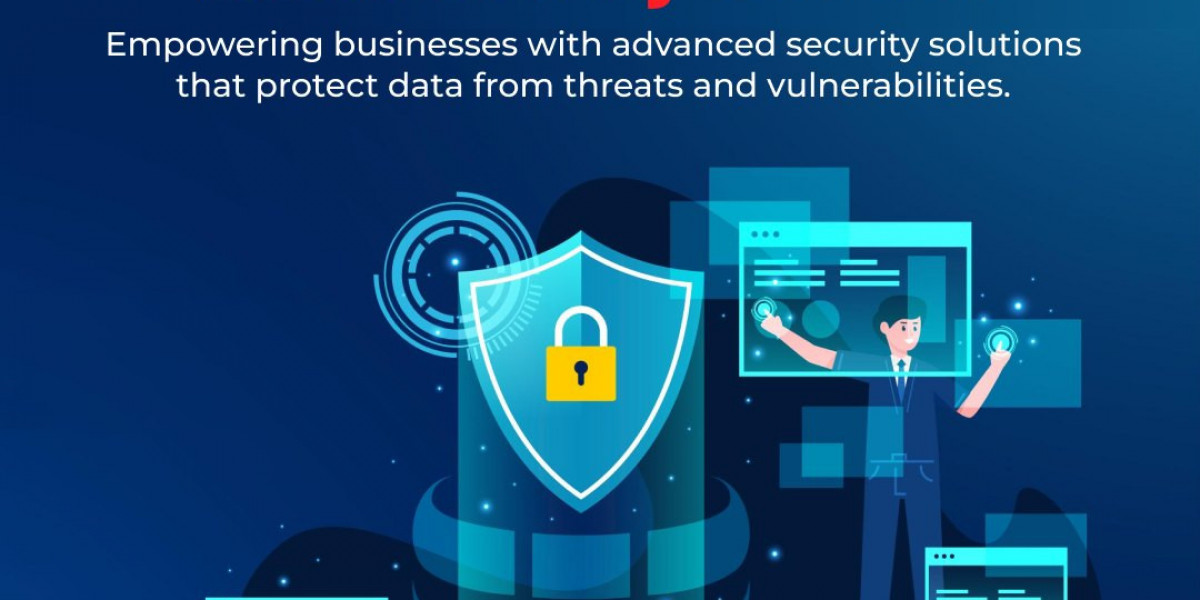In an era where cyber threats are on the rise, businesses must implement robust Data Security Solutions to protect sensitive information. Whether it's customer data, financial records, or intellectual property, securing data is critical for maintaining trust and regulatory compliance. Organizations must adopt effective security strategies to defend against cyber threats and data breaches.
Understanding Data Security Solutions
Data security refers to the practices, tools, and policies used to protect digital data from unauthorized access, corruption, or loss. With businesses handling large amounts of sensitive data, implementing Data Security Solutions is essential for preventing cyberattacks, ensuring business continuity, and maintaining regulatory compliance.
Key Components of Data Security Solutions
1. Data Encryption
Encryption is a critical aspect of data security that converts information into unreadable formats, ensuring only authorized users can access it. Strong encryption algorithms protect sensitive data from hackers and cybercriminals.
2. Access Control and Authentication
Businesses must implement stringent access control mechanisms to ensure that only authorized personnel can access sensitive data. Multi-factor authentication (MFA), biometric verification, and role-based access controls (RBAC) help prevent unauthorized access.
3. Firewall and Network Security
Firewalls serve as a protective barrier between internal networks and external threats. Advanced firewalls, intrusion detection systems (IDS), and intrusion prevention systems (IPS) safeguard businesses from cyber threats.
4. Data Backup and Recovery
Regular backups ensure that businesses can recover lost or corrupted data in case of cyberattacks, hardware failures, or natural disasters. Cloud-based backup solutions provide secure and scalable data storage options.
5. Endpoint Security
Endpoint security protects devices such as laptops, smartphones, and tablets from cyber threats. Antivirus software, endpoint detection and response (EDR), and mobile device management (MDM) are crucial for securing endpoints.
6. Security Compliance and Regulations
Businesses must comply with data protection laws such as GDPR, HIPAA, and ISO 27001 to avoid penalties and ensure ethical data handling practices.
Benefits of Implementing Data Security Solutions
1. Protection Against Cyber Threats
With the rise of ransomware, phishing, and malware attacks, having robust data security measures minimizes risks and protects critical business assets.
2. Enhanced Customer Trust
Consumers and clients trust businesses that prioritize data security. Implementing strong security measures helps maintain credibility and reputation.
3. Business Continuity
Data breaches and cyberattacks can cause operational disruptions. With effective security strategies, businesses can ensure continuity and prevent financial losses.
4. Regulatory Compliance
Compliance with data security laws prevents legal issues and ensures businesses operate ethically.
5. Competitive Advantage
Companies that prioritize data security gain a competitive edge by offering safer and more reliable services.
Best Practices for Implementing Data Security Solutions
1. Conduct Regular Security Audits
Routine security assessments help identify vulnerabilities and ensure compliance with best practices.
2. Educate Employees on Cybersecurity
One of the main reasons for security breaches is human mistake. Training employees on cybersecurity awareness helps prevent phishing attacks and data leaks.
3. Implement Zero-Trust Security Model
A zero-trust approach assumes that every user and device is a potential threat and verifies access before granting permissions.
4. Monitor and Detect Threats in Real-Time
Using advanced threat detection systems helps identify and respond to security threats proactively.
5. Partner with Data Security Experts
Outsourcing security management to professional IT security firms ensures that businesses have access to the latest security technologies and expertise.
Future Trends in Data Security Solutions
1. Artificial Intelligence and Machine Learning in Cybersecurity
AI-driven security solutions can detect anomalies and predict cyber threats before they occur.
2. Blockchain for Data Security
Blockchain technology offers secure and decentralized data protection solutions, reducing risks associated with centralized storage.
3. Zero-Trust Architecture
More businesses are adopting zero-trust security models to enhance data protection and reduce security risks.
4. Cloud Security Enhancements
As cloud adoption grows, businesses are investing in advanced cloud security solutions to safeguard data stored in cloud environments.
Conclusion
In today’s digital landscape, securing business data is more important than ever. Implementing Data Security Solutions protects businesses from cyber threats, ensures compliance, and enhances customer trust. By adopting best practices and staying ahead of security trends, organizations can safeguard their digital assets and thrive in an increasingly connected world.








